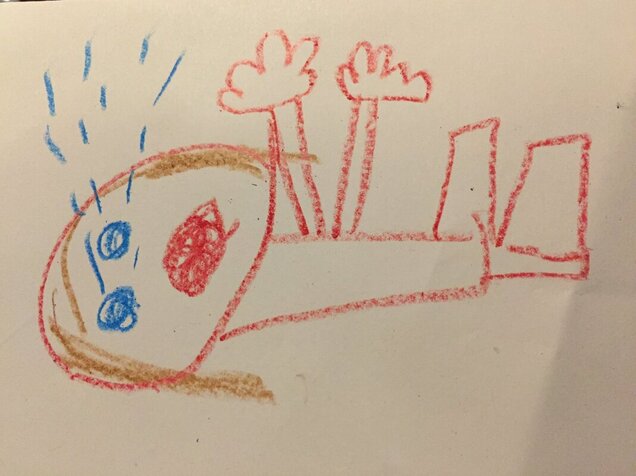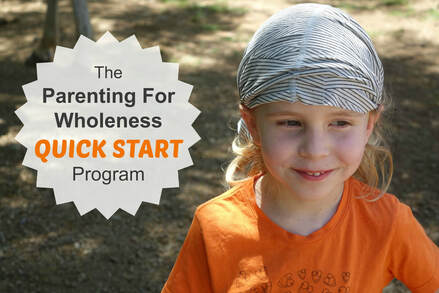|
Why the lovely feeling of connection and peace that social media is talking about might not be happening in your family right now. (Catchy title, I know!) It is all very well imagining cosy days of tucking up together reading stories and watching films, enjoying the slow pace of life, and soaking up all this wonderful connecting time with our children. But what if, despite our best efforts to achieve this state of connected bliss, our children are quite frankly revolting? Whiny and controlling and demanding and angry and sulky and everything else all day long? How on earth are we meant to cosy up on the sofa with them when they feel the need to continuously kick their sibling under the blanket, or complain loudly that they didn’t get to choose the film the entire time it is playing? How do we read stories when they are in some hyperactive irrational place and need to keep emptying pots of small beads around the room while laughing manically and appearing not even to hear the pleas to stop? We are exhausting ourselves attempting to exercise them properly, and feed them properly, and educate them (vaguely), and Facebook is full of a thousand and seventeen fun things to do with your child during isolation, all of which our child wants to do immediately and then loses focus equally immediately. Why can’t we have peace and connection too?? Well, I am going to suggest that the root cause of this behaviour for a large number of children is likely to be anxiety. “But my child does NOT look anxious!” I hear you cry. And that is completely true. An anxious child very often does not fit our picture of what an anxious child is supposed to look like. It is not actually very common to find an anxious child being quiet, and shy, with a worried expression and a series of worried questions for us. It is MUCH more common to find an anxious child who is loud and angry and aggressive, and thug like. To find ourselves as parents struggling not to say the words ‘spoilt’ and ‘ungrateful’. An anxious child might be silly and annoying and spend their time deliberately irritating everyone. Or they might appear controlling and overbearing, interrupting everyone else’s activities, and insisting we do things their way. Anxiety is an emotion that children find very difficult to identify. It is hard for them to be aware that they are feeling it, or to be able to admit that they are feeling it. Their energy is poured into battles about what to wear, or what to do, or where they can or can’t go, or literally anything they can possibly have a battle over. And it is very, very hard as parents to step back and see that the battles are not actually what it is all about. That the battles are just a symptom and while we keep engaging with the battles we don’t get anywhere at all. So we need to work on understanding what is going on underneath. Right now it is so very easy for our children to be anxious. And there are two main reasons for this. Firstly, there is anxiety all around them. Emotions are contagious. Our subconscious midbrains are expert communicators, and our children are fluent in this language. So when we feel anxious (and a very large number of us are currently feeling at least some degree of anxiety), we give off signals that we might be completely unaware of, but our children pick them up as easily as if we have spoken them aloud. The news is everywhere. It comes to us on our phones, our computers, our televisions, our radios. We need to make a concerted effort to prevent ourselves from becoming overwhelmed by it all, and yet we need to keep a degree of information coming in so that we know what the current regulations are. We cannot help but be exposed to it. And our children are exposed to it alongside us. If at any time we manage to get our anxiety levels to dip a little, the news is sure to top them up again. Secondly, as humans, we all have a basic need for a certain level of predictability in our lives. Some of us need higher levels of predictability than others. But we all need some. And for our children, all of their predictability has just vanished. Their schools have closed, their parks and playgrounds have closed. They don’t see their friends. They don’t play their sports or go to their clubs or activities. Their food looks different as we struggle to get hold of the usual ingredients. Their holidays have been cancelled. Their Easter plans to see family have been postponed indefinitely. And critically, nobody knows how long this is going to go on for. When they ask us when they can see Granny again, or when we can go to ballet, our only answer is that we don’t know. And suddenly they have nothing to look forward to. Nothing to anticipate. Nothing to count down the days for, and get excited about. The only thing in their future is this indistinct idea that one day they’ll be able to do all the things they are missing right now. But no concrete idea of when that might be. They have no predictability. So it is no wonder that our children might be struggling. What can we do to help? Here is my list:
There is a lot packed into these 10 steps, and we don’t need to tackle them all at once. I am going to go into a lot more detail around each of these steps in coming posts, so if you want to know more then just like and follow this page. If you want more support, join the Parenting for Wholeness Quick Start program which will give you access to ongoing coaching from me as well as regular support calls by Eliane Sainte-Marie. For now, if you can manage just the first two steps in the list, noticing and allowing, then this will go a long way to helping you all cope. These are strange and challenging times. Our children need plenty of understanding and acceptance right now. And so do we.
Watch this conversation we recently had together which describes what you'll get from the program, how Clean Parenting™ helps you uncover and live by your own truth and values, and shows you how we don't take ourselves too seriously. ☺ We'd love to work with you if you decide to sign up! Related resources:
0 Comments
Leave a Reply. |
PARENTING FOR WHOLENESS
HOME BLOG PROGRAMS CLEAN PARENTING™ PROGRAM QUICK START PROGRAM CONTINUUM CONCEPT WHAT IS CLEAN PARENTING™? © 2021 PARENTING FOR WHOLENESS |
|



